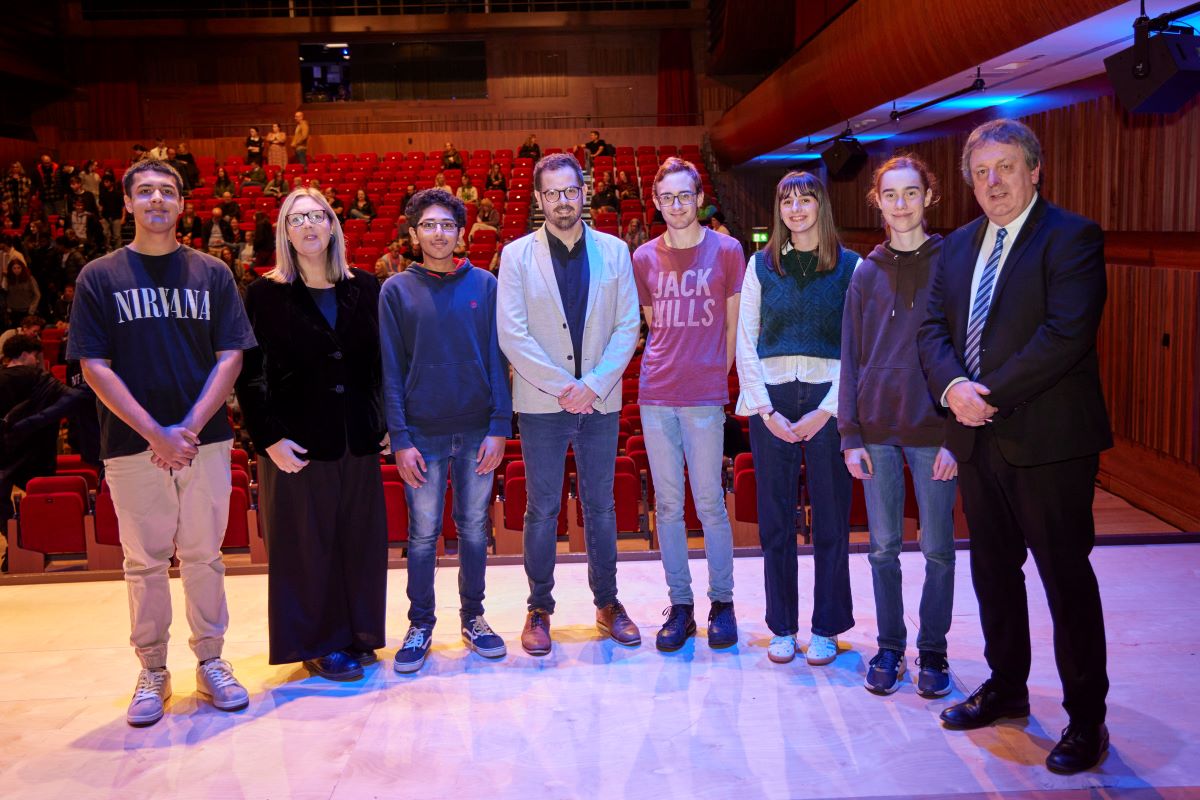The Future of Higher Education: What Role Does Europe Want to Play?

In this article, the author discusses the evolving role of higher education in the context of technological revolutions, emphasizing Europe’s need to assert itself as a global leader by integrating European values and fostering collaboration among universities. It highlights the importance of research, education, and a shared European vision in shaping the future of technology and society, ultimately aiming for a unified continental educational space.
In the ever-evolving landscape of economic and societal development, technology has emerged as a driving force that shapes the course of progress. Until the late 1700s and early 1800s, the Far East regions dominated the world’s economic development as a result of their more dynamic demographic growth. However, with the rise of industrial revolutions, technology shifted the balance in favour of the West and the importance of higher education came to the forefront. Fast forward to the 20th century, where the digital revolution changed the world’s economic leadership again. Today, we stand on the cusp of the fourth industrial revolution, wherein technology, artificial intelligence, and automation are poised to redefine, once again, our lives. As the world looks towards the future, Europe faces a crucial question: What role does it want to play in shaping the trajectory of technology and its impact on society? This article explores the crucial role of higher education in this context and how European universities can lead as beacons of European values in the global arena, by also developing a joint “universal” campus, free of physical, administrative, or educational barriers.
A changing landscape: a tale of two powers
As we delve into history, we observe that economic and societal development were predominantly driven by the Far East regions, contributing up to 80% of the global GDP. The growth of rural economies depended on factors such as the number of citizens, the agricultural workforce, and basic needs consumption.
However, the paradigm shifted with the advent of key industrial revolutions. The first revolution in the late eighteenth century saw a transition from hand production to machine-based manufacturing, powered by water and steam, which spread from Britain to most Western countries. Subsequently, the second in the late nineteenth century reinforced these developments, facilitated by innovations in energy production, electrification, telegraph-based communications, and railroad infrastructures. This era facilitated the unprecedented movement of people and ideas, although it was marked by the devastating impact of the two world wars.
The twentieth century witnessed the third industrial revolution, commonly known as the digital revolution, characterised by the shift from mechanical and analogue electronics to digital electronics, communications, and computers. This revolution ushered in the information age.
Each of these revolutions had a profound impact on economic and societal development. The first two propelled the Western world to grow at an unprecedented rate, leading to increased productivity and improved living conditions. Consequently, by the mid-twentieth century, 80% of the world’s GDP came from Western regions, despite having a smaller population compared to other parts of the world. However, with the advent of the third industrial revolution and globalisation, technological developments became accessible worldwide, causing North America and Far East countries to take the lead in global economic and societal progress.
Throughout these nearly three centuries of development, one constant element has been technology. Technology has not only transformed the development paradigm but also increased productivity, altered human conditions, and impacted the planet.
The role of higher education
Today, as we find ourselves amidst the so called fourth industrial revolution, characterized by internet technologies, artificial intelligence, and automation, the significance of higher education has never been more apparent. The world is interconnected, and technological developments impact every facet of society, demanding a workforce equipped with advanced skills and knowledge. Looking ahead, we must ask ourselves what the next industrial revolution will be in the next century and what its implications will be for our society and the planet.
Regardless of the answers to these questions, it is crucial for people to drive any future technological development responsibly, as it will have a massive impact, potentially even greater than its predecessors. People’s actions and behaviours in driving this development will be influenced by their competences, skills, and values. Therefore, investing more than ever in research and higher education becomes strategic, as research will lead to future technologies and higher education will produce future scientists, professionals, and citizens who will harness these technologies.
Europe’s stance on higher education in this era of technological advancement is vital. While the Far East and North America have invested heavily in this domain, Europe must assert its role as a driving force in shaping the future of technology and society through education. European Universities have a responsibility to integrate the current traction from both the Far West and the Far East while incorporating European values. These values, including human rights, human dignity, freedom, democracy, equality, and the rule of law, form the foundation of European culture. In an interconnected society where technological developments impact every corner of the world, it is wise to embrace multiple perspectives and include individuals with diverse backgrounds and values to achieve holistic and comprehensive development.
Europe’s universities at a crossroads
European Universities face challenges due to their comparatively smaller size and resources. To overcome these obstacles, collaboration and unification of efforts become imperative. By pooling resources and attracting top talent, research infrastructures, and financial assets, European Universities can achieve the critical mass necessary to fulfil their mission. Attracting top human capital, competences, research infrastructures, and financial assets is essential for their success.
The “European Strategy for Universities,” published by the European Commission last year, aligns precisely with this direction, urging European universities to serve as global lighthouses for European values in shaping the future of technology and society.
Against this backdrop, the vision of a future in which students, researchers and staff move freely within the European space, sharing knowledge, assets, and resources, and fostering a collective European spirit in higher education, has started to become more concrete.
To make it possible, Europe, its countries, and its universities must invest in some clear directions in the coming years. They need to release some rules and procedures, mostly linked to the past and consolidated habits, in order to define a high-level normative framework flexible enough to valorize the diversity of local specific features. They need to design and implement proper smart digital systems and infrastructures in order to achieve a real interoperability in the information flows regarding projects, professors, students and careers. They need to increase funding and infrastructures sustaining people mobility, ranging from grants and scholarships to dorms and residential facilities.
These three directions all require massive investments and several years to achieve concrete results. However, the real and most difficult challenge is the fourth one: people culture. The driving force of any change is people, if politicians and the academic world are not fully convinced about this picture and they are not determined enough to support it in the long run, any effort will be useless.
On this path, alliances today play a crucial role. ENHANCE, for example, of which Politecnico di Milano is proud to be a founding member, unites top science and technology universities in Europe with the vision of a federal university without national borders. The initiative aims to instil the European spirit, irrespective of where individuals come from, while leveraging critical mass resources to bring European values to future global technologies, scientists, and professionals.
In the same spirit, the ultimate goal is for Europe to fulfil its mission of integrating European values on the global stage, playing a central role in the development of knowledge, technologies, and future citizens, transcending the scope of individual alliances to create a unified continental educational space.
European universities are thus at a crossroads, facing the choice of either coming together to take a leading position in the next technological revolution or remain separate entities and play, each in its own dimension, a secondary role.
By Stefano Ronchi Vice Rector for Education and Learning, Politecnico di Milano Chairman of the Steering Committee, ENHANCE
FE News on the go…
Welcome to FE News on the go, the podcast that delivers exclusive articles from the world of further education straight to your ears.
We are experimenting with Artificial Intelligence to make our exclusive articles even more accessible while also automating the process for our team of project managers.
In each episode, our thought leaders and sector influencers will delve into the most pressing issues facing the FE sector, offering their insights and analysis on the latest news, trends, and developments.











Responses